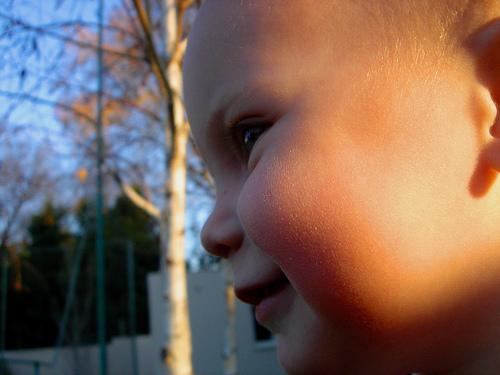Toddlers have been described as “long on will and short on skill.” This is a time of major transitions and growing pains. Toddlers are transitioning from fully dependent babies into children with separate identities. Toddlers like to explore as long as their parents are within reach. Many toddlers trot off from mom or dad and then “touch base” with their parents, a symbol of their budding independence.
Time Frame
The toddler stage begins when a child walks, or “toddles.” Generally, children that are 1 to 3 years old are considered toddlers.
Features
1-year-old children are torn—they want to be independent and do as much as possible by themselves but they are inescapably dependent on caregivers. They are starting to see themselves as separate beings who feel a range of intense emotions in a short period of time. Toddlers are prone to mood swings and are easily frustrated due to their inability to verbally express themselves. They are unable to figure out why they can’t have everything they want when they want it and have a hard time remembering rules. 1-year-old children are possessive and may become anxious around other toddlers.
2-year-old children assert themselves by saying “no” and being disobedient. They are easily frustrated and have perfected the art of throwing tantrums. 2-year-old children like to imitate adults and like to play near—and increasingly with—other children. They are more sure of themselves than 1-year-olds and are starting to become aware of other people’s emotions—the beginnings of empathy.
Misconceptions
Many parents assume toddlers are misbehaving or are “bad” when throwing tantrums or disobeying rules, when in fact they’re just being toddlers. Rebellious phases are normal and to be expected for toddlers. This is a way for them to develop a sense of individuality. Make sure you don’t hold unreasonable expectations for toddlers. It helps to be familiar with normal toddler development before reprimanding your child for what really is beneficial behavior.
Significance
Toddlers are quickly learning many skills—empathy, a sense of self, and how to be independent. 2-year-old childern refine their talking skills and are learning the basics of effective communication, though they’re still limited in what they can say. This is a time of major changes and all phases of development, even the ones parents find annoying (tantrums), are a part of growing up. Parents need to be respectful and use positive discipline to sustain proper emotional development. Toddlers need consistency, guidance (though let them do things on their own until they’re frustrated) and love.
Considerations
Parents play a pivotal part in a toddler’s emotional development. Parents need to be responsive and affectionate. If your toddler becomes angry about wanting something he can’t have, distract him and substitute that item with something else. Always model positive behavior and sharing. When playing, “scaffold” your child. Be near him when playing and only give him help when he clearly needs it. This shows that you value his independence.





